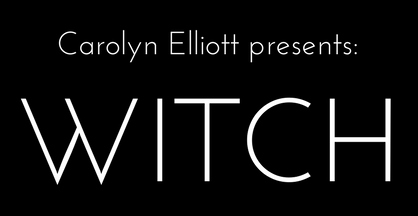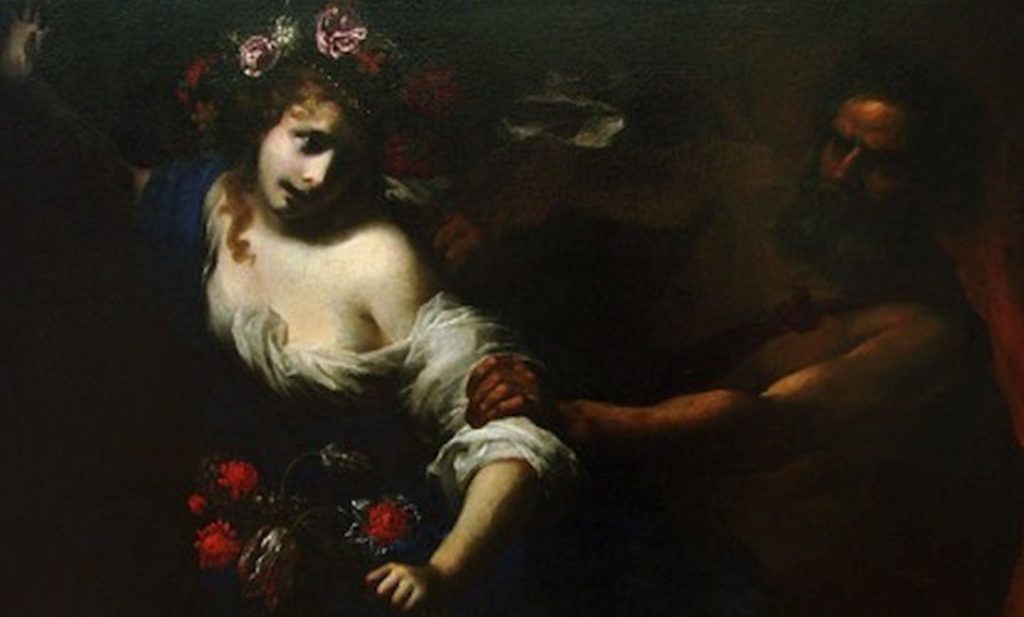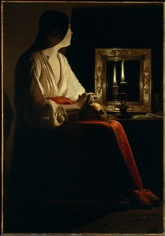by Amy Heneveld
Myth is movable.
All too often we get stuck in telling stories that define us as victims and prevent us from owning our power as the magical authors of our own lives.
All too often the tellers of women’s stories are men who for centuries controlled which stories were told and how.
Listening to Carolyn Elliott’s recent podcast on the Heroine’s Journey, I was reminded of a dark time in my life during which I had started to rewrite the story of Persephone’s descent as a choice.
At the time it had allowed me to feel more purpose as I traversed a dark night of the soul and encountered my demons.
Recently in an online story writing course with Leah Lamb, I finally finished it and I offered it as a performance at the end of our work together.
I offer it here as inspiration for how to rethink our own journeys as we wander in the sometimes dark valleys of our lives.
Writing for me is often a means of shadow integration; stories can lead us home to our unified wills.
Persephone’s Choice
Persephone walked down the long path to Death.
She held her breath.
She went of her own free will, curious at the darkness.
No one sent her, she was no bride,
her innocence pulled her,
she didn’t hide.
Faces came out of the darkness,
brown curls, the roots of trees,
took shape and spoke to her imagination,
“Speak to us please.”
She used the only language she knew.
She watched their mouths move,
bits of crumbled teeth,
bark cracked lips, earthy breath,
she spoke of herbs
and asked for Death.
“This is my wreath,” she said,
“these are my thorns,
this is my gown,
not yet torn.”
She said “You are my teacher,
please lead me deeper.”
They took each small white hand
in curling maw of root.
They touched her center spot
and guided her, intent.
They took her, eyes wide with discovery,
to the very back of earth’s spine.
The monsters ground about her feet,
she sang to them, they whined.
She danced with them.
They entwined and withered, writhed,
enchanted by her sighs and songs
so sweetly dark and knowledgeable now,
forgetting time.
“What is darkness?”
Persephone asked them.
“Where do I walk from here?”
They showed her the path, deeper down now,
she saw ghosts and roots, celeriac and turnip,
like apples underground, with eyes, white filigrees
searching for life.
They took her to the King
who sat in his throne of bones.
He smiled at her, a toothless grin,
and called her whore.
She loved the feeling of the night
wrapped around her in his embrace.
He offered her a fruit,
a pomagranite, split, its open wound
and brain-like waves, bee-like hubs
of sweetness, nubs.
She did not say no.
The red juice squirted out between her teeth,
the crunch of bones, the seeds of war,
she wanted more.
She stared into the the darkness
until it became light,
and worked out a rhyme:
If water beckons
it is fire,
if fire calls,
it is the fount.
Water and fire,
both inside,
opposing forces
at once one,
one at once,
fighting, now calm,
at peace, in strife.
Now Persephone turned back to the light.
She saw her mother waiting for her.
She turned away from the shadow,
reversed her path to find her way back home.
She said to Death who would hold her there,
“I cannot stay below a full year round.
I must return above ground
to find pleasure and sense,
the smells and the warm earth
in the sun, renewal.”
She walked back out to the light of day.
As she walked, her love, the pomegranate seed,
reminded her she knew the dark,
and not to forget the roots, the rich decay.
She left a long trail of red, like thread,
so she would not forget the way.
Standing again in the sun,
she struck her foot on the earth.
“I’ll share my time in each, both above and underground.
As the roots go down, so the light rises,
for I am both.”
And thus she belonged where none would miss her.
Ever here, now there, returning, found,
to kiss, to mind, to bind, to part,
to lose and see the loss was not
what she had thought.
And peaceably she passed each year this way.
She bore a child to Death,
whom she filled with light.
She set it adrift, like a lantern,
to live in the night.
_____________________________________________________________________________
IN CONCLUSION
If this essay resonates with you, please join our WITCH email list by using the forms on this website so we can stay in touch.
About the Author:
featured image – source
Merken
Merken


